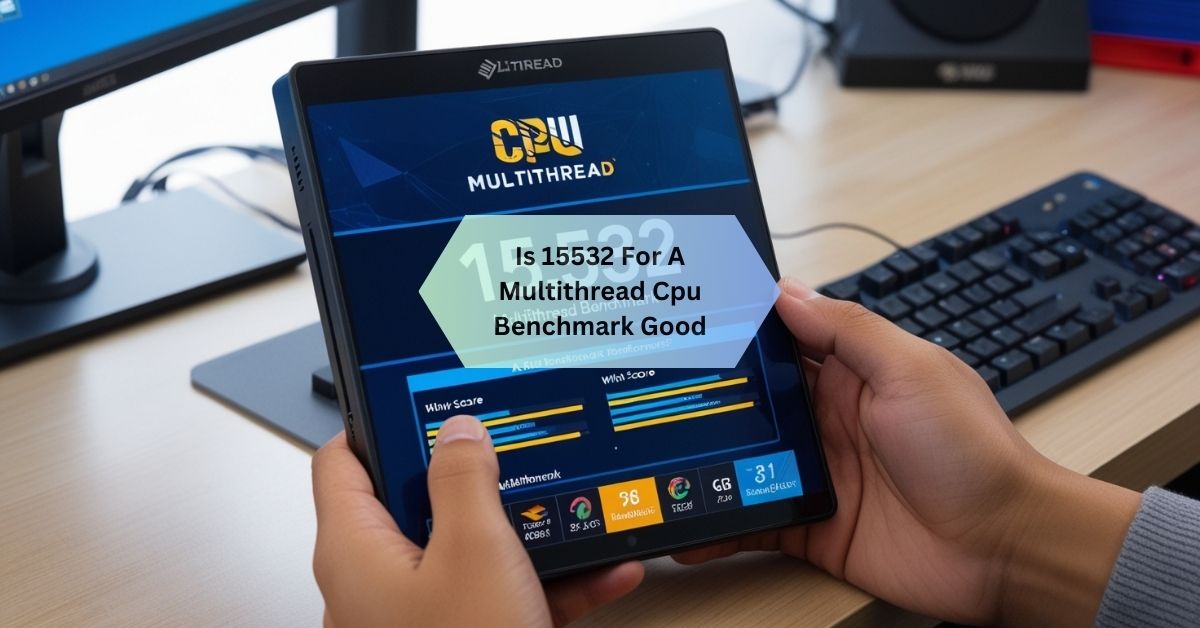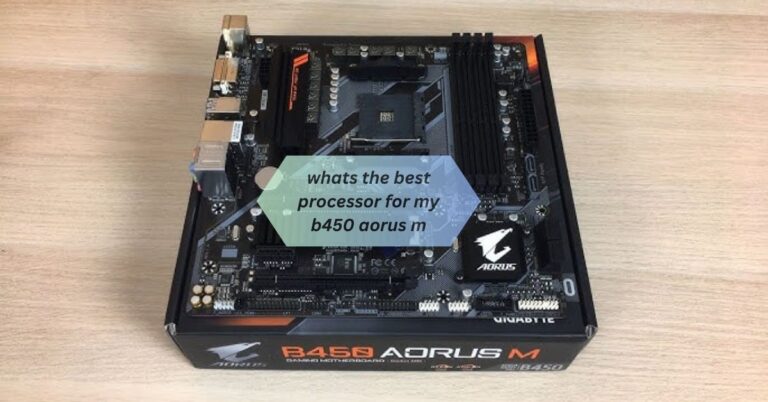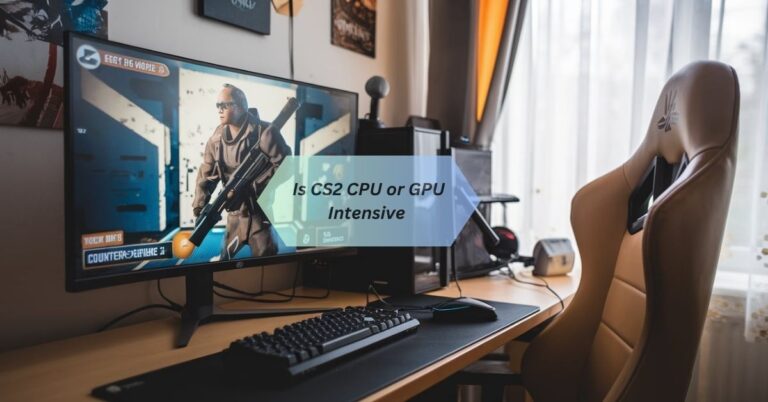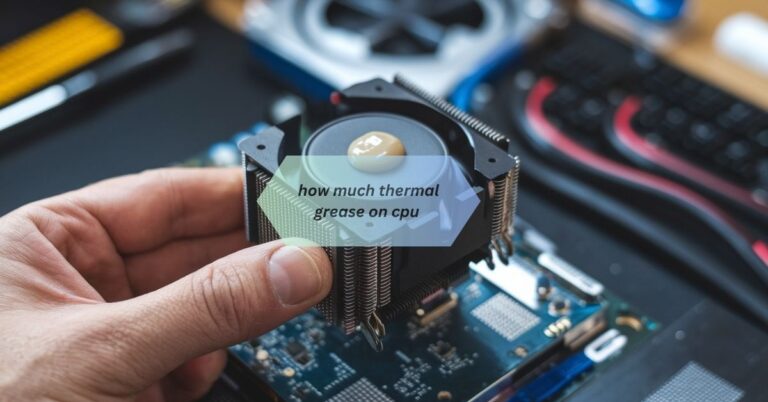Is 15532 For A Multithread Cpu Benchmark Good!
I recently tested my CPU with a multithread benchmark and scored 15,532. Honestly, I was impressed—it’s a solid result for most tasks, but I’m curious to see how it holds up with more demanding workloads!
Is 15532 For A Multithread Cpu Benchmark Good for most mainstream tasks, offering solid performance for gaming and productivity. However, high-end applications and intensive workloads may require higher scores for optimal efficiency.
Stay tuned with us as we dive deeper into the question, “Is 15,532 for a multithread CPU benchmark good?” We’ll break down what this score means and how it impacts performance for different tasks!
What Is A Cpu Benchmark?
A CPU benchmark is a test used to evaluate the performance of a computer’s central processing unit (CPU) by subjecting it to a series of tasks and comparing its output against predefined standards or other CPUs. These benchmarks help to quantify the processing power of a CPU and offer an easy way for consumers and professionals to assess a processor’s capabilities before making purchasing decisions or optimizing their systems.
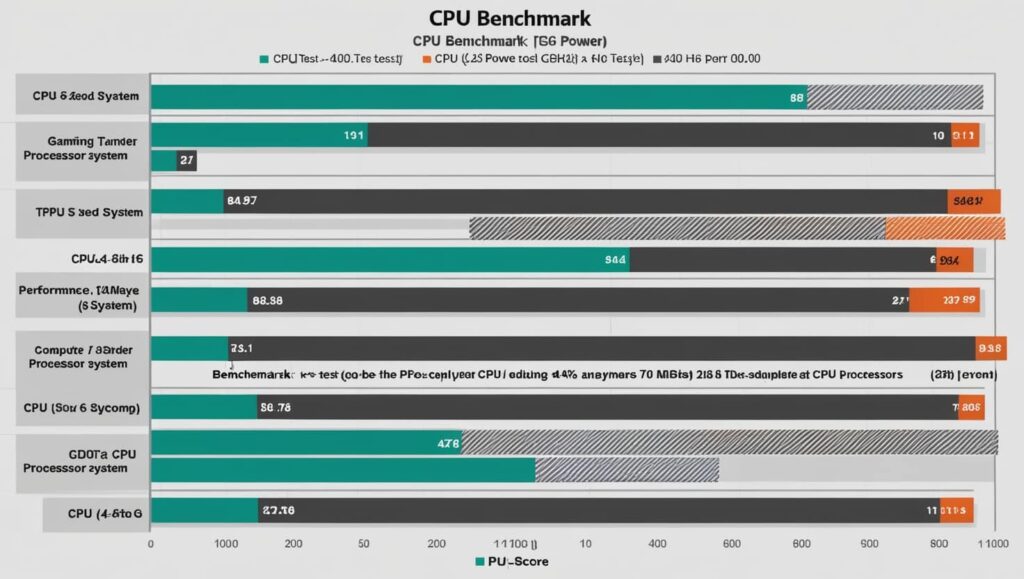
The benchmark score is typically used to compare the raw performance of different processors under specific workloads. This allows users to make informed decisions when choosing CPUs for tasks such as gaming, video editing, data analysis, and more.
Importance of CPU Benchmarks
Benchmark scores are important because they provide a clear, objective way to assess how a CPU will perform in different applications. Whether you’re building a custom PC or upgrading your system, knowing the benchmark score can give you a better understanding of the CPU’s capabilities without having to test it yourself.
Different Types of CPU Benchmarks
CPU benchmarks can broadly be divided into two categories:
- Single-threaded benchmarks: These tests evaluate how well a CPU performs when running tasks that require the processing of a single thread at a time. Single-threaded performance is essential for applications where tasks cannot be split into smaller chunks for parallel execution (like legacy software or certain types of games).
- Multi-threaded benchmarks: These tests assess the CPU’s performance when handling multiple threads simultaneously. Multi-threading allows a CPU to handle more tasks concurrently, making it ideal for modern applications such as video editing, 3D rendering, and scientific simulations.
Also Read: Swtor Maxxingt Cpu And Not Loading!
Understanding the Significance of Benchmark Scores!
Benchmark scores serve as a tangible measure of a CPU’s raw processing power. When you look at a benchmark score, you’re seeing how well the CPU performs in various tests, including both single-threaded and multi-threaded tasks. However, not all benchmark scores are created equal, and it’s important to understand the significance of those scores.

How Benchmark Scores Reflect CPU Performance
Higher benchmark scores generally indicate better performance, but it’s important to interpret the scores within the context of the task at hand. For example, a CPU with a higher single-threaded score might excel in applications like gaming, where single-thread performance is critical, but may fall behind in multi-threaded applications where parallel execution of tasks is crucial.
The Role of Multi-thread Performance in Real-World Applications
Multi-thread performance is increasingly important in today’s world, where multitasking is more common than ever. Tasks like video editing, 3D rendering, simulations, and data analysis all benefit from CPUs that can process multiple threads simultaneously. A CPU with a strong multi-threaded performance can drastically reduce rendering times, improve video editing workflows, and enhance the overall performance of applications that can utilize parallel processing.
Evaluating the Benchmark Score of 15532
A benchmark score of 15532 in a multi-threaded CPU benchmark indicates that the CPU can handle a significant amount of parallel workloads. To determine if this is a good score, we need to consider the typical ranges for different types of CPUs, the number of cores and threads, and the processor’s architecture.
Is 15532 a Good Score for a Multithreaded CPU Benchmark?
The answer depends on the context. A score of 15532 in a multi-threaded benchmark is competitive for mid- to high-tier processors, but it may not be enough for cutting-edge CPUs designed for highly demanding applications like 4K video rendering or intensive simulations. Let’s break it down:
- For Budget CPUs: A score of 15532 is excellent. Many budget CPUs, especially those in the entry-level range, will not reach this score.
- For High-End CPUs: This score might be below that of the latest and greatest processors, like the Intel Core i9 or AMD Ryzen 9 series, which can score in the 20,000+ range in multi-threaded benchmarks.
To put it into perspective, compare this score to that of CPUs like the Intel Core i7-10700K or AMD Ryzen 7 5800X, which typically score between 15,000-20,000 in multi-threaded tests. Therefore, 15532 is a very competitive score for mid-range or upper mid-range CPUs but not quite at the level of high-end processors.
Factors That Affect Benchmark Scores!
There are several factors that influence the benchmark score of a CPU:

- CPU Architecture: Different architectures, such as Intel’s Core architecture or AMD’s Zen architecture, affect how efficiently a CPU performs. Modern architectures like AMD’s Zen 3 (found in Ryzen 5000-series chips) or Intel’s Alder Lake (12th-gen) processors provide significant improvements in multi-threaded performance.
- Number of Cores and Threads: More cores and threads generally result in better multi-threaded performance. CPUs with more cores can process more tasks simultaneously, leading to higher benchmark scores in multi-threaded tests.
- Clock Speed and Turbo Frequency: The clock speed (measured in GHz) is another important factor. A higher base or turbo frequency allows a CPU to execute more instructions per second, improving performance. Turbo boost features in Intel CPUs or Precision Boost in AMD Ryzen chips also enhance performance when needed.
- Cooling and System Configuration: Adequate cooling is crucial for maintaining high performance. Overheating can cause thermal throttling, which reduces the CPU’s clock speed and, consequently, its benchmark score. The overall system configuration (e.g., RAM speed, motherboard, storage) also plays a role in achieving optimal performance.
Also Read: Is 4000rpm Too Low For Cpu Fan – Get The Facts Here!
Performance Considerations for Multi-threaded Tasks!
Multi-threaded tasks, such as those found in content creation, software development, and scientific research, require CPUs capable of handling many threads simultaneously. When evaluating a CPU’s multi-threaded performance, here are some key applications to consider:
Applications Benefiting from High Multi-thread Performance
- Gaming: Although gaming traditionally favors single-thread performance, modern games are beginning to benefit from multi-threaded CPUs that can handle background tasks, physics simulations, and AI calculations.
- Video Rendering: Software like Adobe Premiere Pro or Final Cut Pro relies heavily on multi-threaded performance. A CPU with high multi-thread scores can reduce rendering times significantly.
- Simulations: Scientific simulations, financial modeling, and other applications that require heavy calculations benefit from CPUs with multiple cores and threads.
Impact on Software that Requires Heavy Parallelization
Many modern applications and services, especially in data science, machine learning, and engineering, have been optimized for multi-threading. For example, TensorFlow, a machine learning framework, benefits greatly from high core counts and multi-threaded performance. This highlights why CPUs with high multi-thread benchmark scores are so important for professionals in these fields.
How to Interpret Multi-thread Scores Across Different CPUs
It’s essential to interpret multi-thread scores not only by the raw score but also by considering the type of CPU being compared.
- Budget CPUs: CPUs like the AMD Ryzen 5 5600X or Intel Core i5-11600K may score between 10,000-15,000 in multi-threaded benchmarks. While these are solid performers, they won’t keep up with high-end chips in demanding tasks.
- Mid-Range CPUs: CPUs such as the Intel Core i7-10700K or AMD Ryzen 7 5800X will typically score between 15,000-18,000. These processors are well-suited for gaming, content creation, and general multi-threaded applications.
- High-End CPUs: The Intel Core i9-12900K or AMD Ryzen 9 5950X can score in the 20,000+ range. These CPUs excel at multi-threaded tasks and are excellent choices for heavy workloads like 4K video rendering and simulations.
Comparing 15532 with Other Popular CPUs!
Let’s compare the 15532 benchmark score to other popular CPUs to get a better understanding:
- Intel Core i9-11900K – Multi-thread score: ~15,000-18,000. Close to the 15532 score.
- AMD Ryzen 9 5900X – Multi-thread score: ~25,000. Significantly higher.
- Intel Core i5-11600K – Multi-thread score: ~13,000. Lower than 15532.
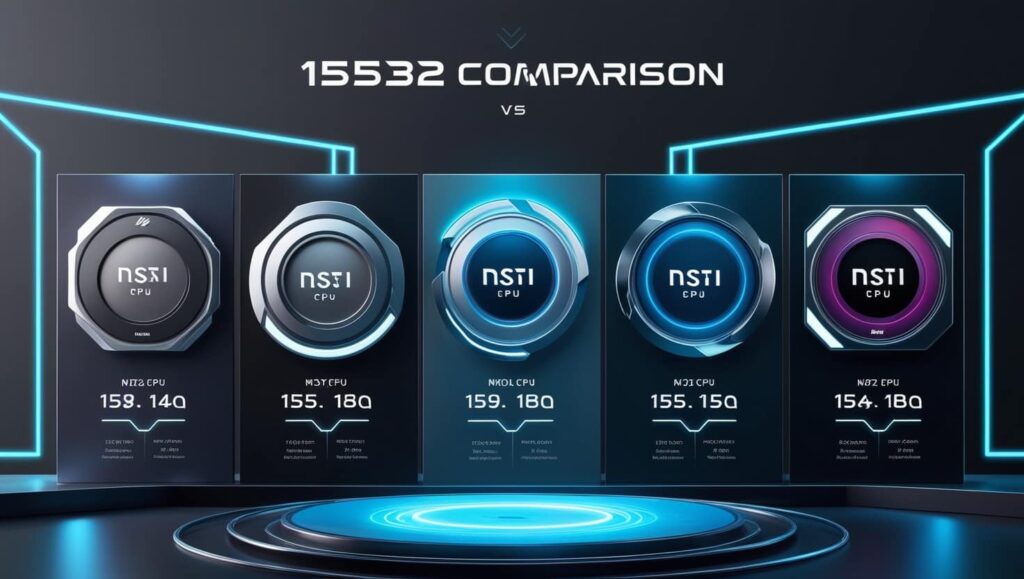
Benchmarks of AMD vs Intel CPUs
Both AMD Ryzen and Intel Core series processors perform well in multi-threaded applications, but they have distinct strengths:
- AMD Ryzen CPUs often offer more cores and threads at similar price points, which boosts their multi-threaded performance, especially in demanding applications.
- Intel CPUs, while competitive, generally offer slightly better single-thread performance. However, with newer Intel Alder Lake chips, Intel has made significant strides in multi-threaded performance.
Intel Turbo Boost vs Ryzen Core Count
Intel CPUs typically rely on Turbo Boost to dynamically increase the clock speed for improved single-thread performance, while AMD Ryzen CPUs are often superior in multi-thread performance due to their higher core and thread counts.
Also Read: Plc High Cpu Usage – Common Causes & Solutions!
FAQS:
Low CPU Benchmark Score, Should I Be Worried?
A low CPU benchmark score can mean slower performance, especially for heavy tasks. If you mostly do basic tasks, it may not be a big concern.
What is a Good CPU Benchmark Score?
A good CPU benchmark score typically falls above 10,000 for most users, with scores over 20,000 being ideal for demanding tasks like gaming and video editing.
What is the Difference Between Single-Thread and Multi-Thread Benchmark?
A single-thread benchmark tests how well your CPU performs with one task, while a multi-thread benchmark measures performance when multiple tasks run at once.
Is CPU-Z Benchmark Reliable?
CPU-Z benchmark is generally reliable for comparing CPUs, but it’s best to use it alongside other tools for a complete picture of your CPU’s performance.
Conclusion
A benchmark score of 15532 for a multi-thread CPU is good for mid-range processors, providing strong performance for tasks like gaming and content creation. It offers a solid balance between cost and power for general multitasking. However, for demanding applications like 3D rendering or professional video editing, higher scores (above 20,000) may be needed.
While not top-tier, 15532 is a competitive score that meets the needs of most users. It represents a great choice for users seeking a reliable, cost-effective CPU for multi-threaded workloads. Ultimately, it’s an excellent score for many but may not satisfy the most demanding users.
